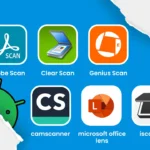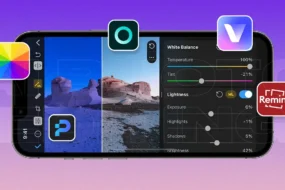We all are witnessing how people spend more and more time online each year. The numbers are ever-increasing, and there is no going back. This is mainly because all our needs are available online. The amount of time spent using mobile devices is rising along with their utilization.
The engaging mobile applications on smart mobile phones have expanded their use. Hence, it becomes crucial to create fun and bug-free software. It is now known that every organization is eager to develop mobile applications and do business online. As the need for mobile applications grows, so does the need for more automation testing methods.
But if there’s even the slightest flaw in an app – performance issues, a poor user interface, or even a crash – people will not even spend time leaving a bad review. Investing in automated mobile testing is the order of the day to avoid bad reviews and failures.
This blog post takes an in-depth look at mobile app test automation and its importance. Read on to learn more!
Mobile App Testing – What Is It?

Mobile application testing is done to ensure that the functionality and usability of a mobile application meet all the criteria and that it is prepared for a successful launch. Mobile application testing is a process of running tests on the application. Functional testing, usability testing, performance testing, security testing, and load testing are some major types of tests that are part of mobile application testing.
It is essential to note that mobile app testing is a complex procedure, with a wide variety of screen resolutions, operating system versions, and more. You can expect a successful mobile app launch. An app distributed via a marketplace will be of the highest quality, thanks to mobile app testing.
Before you start testing a mobile application, take care of the following:
- Always choose your testing strategy correctly. You may test mobile applications on actual devices or emulators. Real device clouds let you utilize hundreds of devices remotely, conduct testing simultaneously, and record the outcomes.
- Ensure your test coverage is adequate. If you disagree, there are specific methods to make it better.
- There is always space for improvement, even if you are familiar with mobile app testing. Increase testing effectiveness by implementing a strategy, embracing continuous testing, and automating mobile app testing.
Using actual devices in the cloud, you can now automate mobile application testing using LambdaTest’s mobile test automation platform. With this platform, you can run your tests on thousands of actual devices for mobile app testing — all thanks to LambdaTest’s automated and manual app testing options using automation tools like Appium.
Your mobile application testing environment does not require setup, thanks to LambdaTest. Its cloud-based solution enables you to test with emulators and simulators from anywhere using a browser and a reliable internet connection. LambdaTest’s strong infrastructure handles everything else.
- Speaking of test automation, you need to choose which testing procedures you want to automate and which are best to perform manually. It is a good idea to test your app manually. Eventually, you can test it using a variety of platforms and devices while modifying the code and test scripts. Automation testing is appropriate in this situation. Just remember that manual and automated testing are two partners working together to make your app the best of the best, not competitors.
What Makes Mobile App Testing Important?

Building mobile applications has an ultimate objective, i.e., expanding corporate reach to more customers worldwide. Yet, if the software is broken or challenging to use, people are unlikely to utilize it. Therefore, no organization wants its clients to remove their applications and use a rival.
Issues in mobile applications will not only harm the service or product of that specific organization. Still, they will also need to be convinced of its proficiency and the effectiveness of the firm’s other apps. Any application’s lack of functioning to maintain the brand and public perception of the business lowers the return on investment. According to research conducted three years ago, about 88 percent of customers abandoned an app at some point due to bugs or malfunctions. As a result, the significance of offering users bug-free apps cannot be overstated.
If mobile applications are not thoroughly tested, there is an excellent likelihood that users could run into severe issues on their devices, which might make for a poor user experience—especially for novice users.
Keep in mind that every mobile app’s success depends heavily on initial impressions. Any random app crash or fault in the program’s operation might result in its instant deletion. Potential clients and income are also lost as a consequence of this.
In addition to all this, a high-quality application guarantees that consumers will give it positive feedback. With millions of mobile applications already accessible, your app’s ratings and reviews are essential to convince new users to download it.
Benefits of Mobile App Testing!

App Deployment Becomes Quicker.
One of the most crucial elements of software development is bug fixing. An enormous amount of time and effort is put into manual testing to find a bug in the code. Mobile automation technologies may reduce it. These time-consuming problems can be solved by automated mobile testing. The automation tool allows us to verify that the code performs the intended action, and creating a tight feedback loop is necessary.
Improved UI/UX
Testing enables QA engineers to evaluate the whole app experience by putting themselves in the users’ shoes. They investigate the application’s logic and confirm that it is simple and easy to understand. Yet, if you want to get excellent results, you must continue doing UI and UX tests throughout the product life cycle.
Increased Effectiveness
There is no need for human interaction during autonomous testing. You may run your automated tests at night and get the results the following morning. Since automated testing can be run frequently, app developers and the QA team can focus more on other crucial activities and less on testing because they don’t have to worry about manually running the test cases. Employee productivity rises as a result.
Proper Operation
The goal of QA is to ensure that an app runs flawlessly. They examine how well the application functions when subjected to certain performance constraints, such as varying network occurrences and load conditions. Every QA team chooses whether it will use android emulators or real devices to test. Avoid placing your eggs in one basket while evaluating these two possibilities.
Simulators are helpful in the initial stage of the app development process, but you have to consider actual devices prior to deploying your app to ensure it is functioning properly. Our knowledge suggests that the optimum course of action would be to combine the two strategies and add a device cloud to complement them.
Immediate Feedback
Another benefit of automated testing is immediate feedback. Since tests are performed quickly, test findings are produced instantly, allowing developers to fix problems as soon as they arise.
Reduces Costs
Contrary to popular belief, automated testing is more cost-effective than manual testing. Automation may speed testing and lower human error, whereas manual testing becomes tedious and repetitive. After the automated testing script has been created, it is free to utilize that script every day for the rest of your life.
Tests That Are More Exact
Automated testing increases the likelihood that your software will run well when launched. Mobile Testing that is automated is more trustworthy than testing that is done manually. Human mistakes will occur during manual testing, but automated testing is more accurate. Systems provide more reliable test cases, which lowers the likelihood of defects.
Dedicated Clients
In the end, the user is everything. Users will surely use it and even ask their friends about it when an app is in use. This will enable your company to grab a larger market cap and establish a solid reputation within the sector. Yet if your software continually upsets consumers, you will never see high levels of loyalty. Therefore be sure you test often and extensively.
What Characterizes a 5-Star Smartphone App?

A mobile app rollout blunder might have catastrophic consequences. One-star-rated applications seldom draw in new users since bugs and lag create a wave of critical feedback that results in low ratings and negative reviews on Google Play or the App Store.
But you have a good chance of succeeding if you take mobile app testing seriously. Let’s examine what prompts users to rate applications five stars and what advantages of mobile app testing will propel your app to the top.
Intuitiveness
People often respond, “They’re straightforward and easy to use,” when asked why they like and use their favorite applications. A fantastic mobile app must provide a flawless user experience since user manuals are not included with mobile applications. Even so, most consumers appreciate intuitiveness, which is very difficult to design while creating an app.
Many app developers tend to overdesign, but the truth is that consumers often remove applications with sophisticated user interfaces because they feel dissatisfied with something that might have made their life simpler. So, at every phase of your app’s development, be sure to test the user experience. Better still, ask genuine users to do it.
Performance
The initial impression is crucial. People are hesitant to give a mobile app another try if it performs poorly according to user expectations. The foundation of an app’s quality is its performance. Thus you must make every effort to evaluate it before the app goes live.
A mobile app can’t succeed in the app store by having a great concept alone; it also has to be implemented well. As you can see, a mobile app can only get five stars if it has undergone extensive testing.
Simple Feedback
An app that functions flawlessly on mobile devices has undergone extensive testing. But even the most powerful QAs can’t cover every test scenario. Users sometimes find defects on their own. Therefore you need to provide a channel for them to contact you directly rather than posting them on your download page. Also, it promotes trust between your company and future clients.
When Should an Organization Invest in Mobile App Testing?

Since they don’t know how to employ automated testing throughout development, many firms use it to some extent but still depend largely on manual testing. There is no optimal timing to implement the automation system. It is based on the expansion and development of the business. Businesses may go forward with mobile automation testing when they wish to profit from millions of apps. Gartner research revealed that companies were making $26 billion in in-app sales as early as 2013.
To Reduce Costs
Automated software checks assist in identifying vulnerabilities early in the software development life cycle, lowering the chance of malware spread. Investing in an automated testing solution will be a smart option since manual testing is monotonous and only used for menial chores. Also, it will lower the expense of manual testing.
To Save Time
Automated testing is much faster than manual testing and requires less labor. The likelihood of errors is considerable during manual testing; even a small number might leave the program vulnerable. You will automatically execute the tests on each commit using automation tools on a continually developing code base.
To Manage Heavy Traffic
Load checking enables your software to handle unexpected user loads. Thousands of trials done by automated testing replicate millions of applications. Manual testing is not capable of doing this.
Quick Recap!
Your main objective is to get more users to use your software, which is exceedingly unlikely if it has bugs. This justifies the significance of mobile-friendly testing. You should be able to create an intuitive, scalable, and high-quality application if you want to stand out in the crowded market for mobile applications.
Indeed, testing mobile apps is a difficult undertaking. But if you do your research and include a testing plan in the app creation process, you can create the five-star-rated software that will get to the top of the app store ranking
Discover more:










